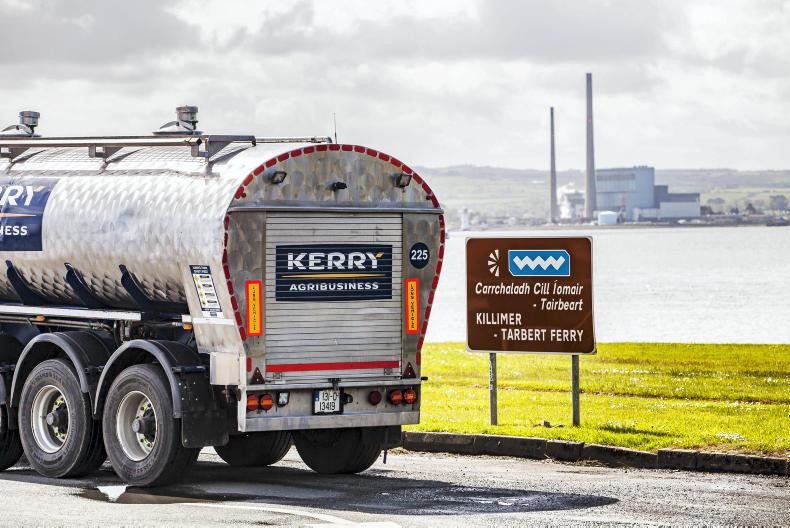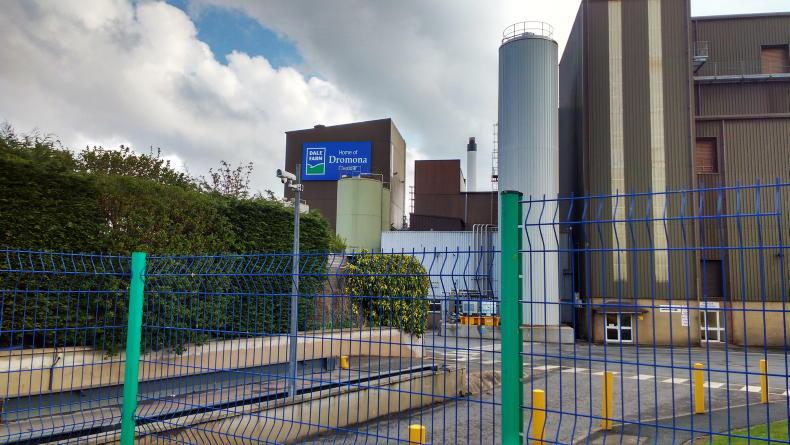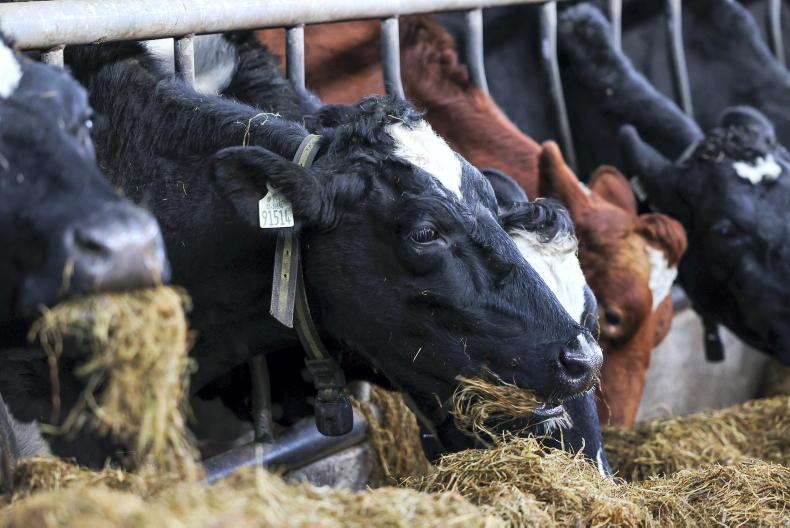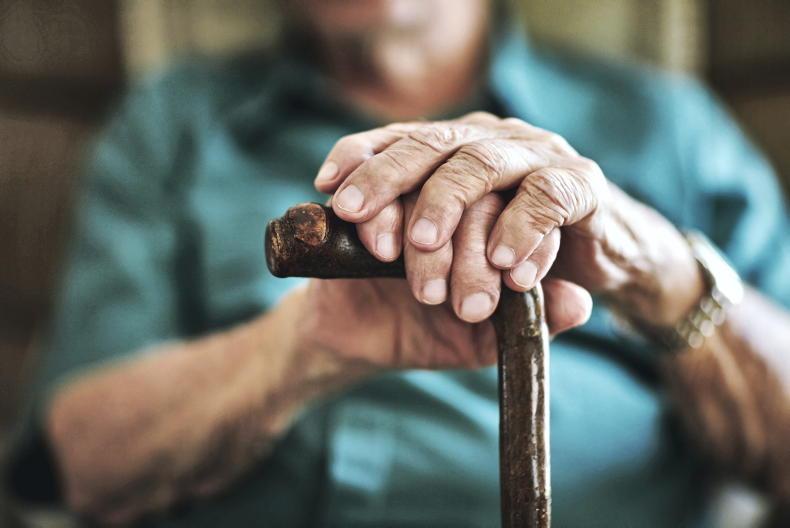In recent years, Kerry Co-op has done exceptionally well on behalf of its members on some issues. On others, the outcomes have been less positive. And then there are issues within Kerry Co-op that have become fraught and personal. You could say we’ve seen the good, the bad and the ugly of Kerry Co-op.
Share redemption scheme
Speak to any shareholder in Kerry Co-op and one thing is clear. Almost all shareholders want increased liquidity in the shares, so they can cash in on the enormous asset wealth that has been created from the growth in Kerry Group plc over the decades.
Up until last year, Kerry Co-op shares were only traded at very low volumes on the grey market with prices ranging from €100 to €300 per share. However, in 2019, Kerry Co-op CEO Thomas Hunter McGowan introduced a share redemption scheme that, for the very first time, gave shareholders a real opportunity to sell a large amount of their shares and realise the full “see-through” value of those shares.
Kerry Co-op held two share redemption windows in June and November last year, which saw the value of a Kerry Co-op share rise to the unprecedented level of €665. In total, almost 3,000 applications were made for Kerry Co-op’s share redemption scheme last year which saw almost €190m paid out to shareholders who decided to cash in.
The only major sticking point of this scheme is that it creates an income tax liability for shareholders. However, the strong uptake of the scheme suggests it has been successful in allowing certain groups of shareholders to sell their shares for full value.
Milk price arbitration
In September last year, the independent arbitrator in the dispute over the “contentious” leading milk price issue at Kerry Group plc ruled that the four west Cork co-ops should be included as a comparison on milk price. This was widely seen as a win for the co-op and dairy farmer suppliers to Kerry Group plc. Both sides engaged in talks after the ruling, which has so far resulted in a 3c/l goodwill payment made to dairy farmer suppliers.
Talks are ongoing between Kerry Group plc and Kerry Co-op on this issue. However, rumours are rife in the Kingdom that a major decision could be facing Kerry dairy farmers in the coming weeks in relation to the future relationship between Kerry Co-op and Kerry Group’s dairy business in Ireland.
Communication of
share redemption scheme
To introduce the share redemption scheme, Kerry Co-op called a special general meeting (SGM) last June to pass two important rules related to the scheme. In the buildup to the SGM vote, chair of Kerry Co-op Mundy Hayes informed members that the SGM meeting would consider two resolutions that would both need to be passed in order to introduce the share redemption scheme.
On multiple occasions, Mundy Hayes stated that the rules are inter-conditional and the scheme would not go ahead unless both resolutions were passed. Only one of the two rules were passed at the SGM, yet Kerry Co-op pressed ahead with its share redemption scheme, as it seems it was entitled to do under the co-op rule book.
However, the communication of these rule changes and the importance of the SGM vote was poorly handled by the co-op. Shareholders rightly had serious questions around the actions of the board and the mistakes made in the lead up to the SGM.
Governance issues at board level
Perhaps some of the most contentious issues at Kerry Co-op are a number of governance issues related to the main board.
In September, Thomas Hunter McGowan carried out an electoral review of all the advisory committees and their electoral areas for Kerry Co-op, as mandated under the co-op’s rulebook.
Unusually compared to other co-op rulebooks, the rules for an electoral review in Kerry Co-op gave Hunter McGowan absolute authority in the process with the board having no input.
In his review, Hunter McGowan determined that the number of elected farmers to nine advisory committees in Kerry Co-op would reduce from 257 to 157.

Tomas Hunter McGowan, chief executive of Kerry Co-Op.\ Valerie O’Sullivan
Elections for these reduced advisory committee members took place in October and November in Kerry.
Hunter McGowan’s review also mandated that the main board of Kerry Co-op would reduce from 28 to 19 board members.
However, this process will not happen immediately as Hunter McGowan has indicated a phased process of “withering on the vine” will be used to reduce board numbers.
At the end of 2019, the board of Kerry Co-op had reduced to 23 in size after the terms of five members had ended. However, it will take a further two years for the board to reduce to 19, which Hunter McGowan is describing as a transition period.
Some shareholders in Kerry Co-op have questioned this approach and called on all members of the board to resign their positions and for a new board of 19 to be elected from the 157 advisory committee members.
Under the rules of Kerry Co-op, the main board of directors in the co-op is elected from the larger pool of advisory committee members. In this way, each advisory committee, depending on its size, can elect between one and three directors to the main board of Kerry Co-op.
This allows each advisory committee to have at least one representative on the main board of Kerry Co-op who can then report back to the advisory committee at monthly meetings.
However, disputes have arisen within Kerry Co-op as six members of the current main board are no longer elected members of an advisory committee, including the chair Mundy Hayes.
Most of these six board members are no longer elected members to an advisory committee because they were ineligible to stand for election under age limits set by the co-op rulebook.
However, one of these six, Conleth McMahon, did contest the election to his advisory committee but lost out. Despite this loss of his seat on the Feale advisory committee, McMahon remains on the main board of the Kerry Co-op.
On top of this, three directors who finished their term on the board of Kerry Co-op in 2019 have all remained as members of the “leading milk price” sub-committee of the board. Despite no longer being members of the board of Kerry Co-op, Hunter McGowan insists these three former directors will continue their work on the leading milk price sub-committee until negotiations with Kerry Group plc are completed.
The Shareholders Alliance group within Kerry Co-op has highlighted each of these inconsistencies as major breaches of corporate governance within the co-op. The group says the long-standing precedent is that if a board member is not a member of their advisory committee, then they must immediately step down from the main board.
In Glanbia Co-op for instance, the rules are very clear on this point that members of the main board must be elected to their regional committee. In Kerry Co-op, the rulebook is silent on this specific matter, which allows CEO Thomas Hunter McGowan the power to interpret the rules as he sees fit.
Hunter McGowan’s interpretation is that board members are entitled to serve out their terms on the main board even though they may have lost their seats at the advisory committee level. This may not be best practice in strict corporate governance terms but it is fully compliant within the rules of Kerry Co-op such as they exist.
Faction fighting
Perhaps the ugliest part of what’s gone on at Kerry Co-op over the last two years has been the bitter faction fighting within the co-op. There’s €2.4bn on the line so it’s understandable that emotions are high. Some farmers have huge shareholdings in the co-op and the wrong decision at board level could cost them millions.
At the same time, other farmer shareholders have deep historical connections to this co-op and wish to see it continue into the future as a co-op that’s relevant to farmers.
Both sides have sincerely held views and passions, which have often boiled over at information meetings and AGMs.
The distrust between some shareholders and the board as well as the distrust between some elements of the board and Kerry Group plc isn’t benefiting anyone in Kerry.
It will take time but divisions need to be healed at Kerry Co-op.
In recent years, Kerry Co-op has done exceptionally well on behalf of its members on some issues. On others, the outcomes have been less positive. And then there are issues within Kerry Co-op that have become fraught and personal. You could say we’ve seen the good, the bad and the ugly of Kerry Co-op.
Share redemption scheme
Speak to any shareholder in Kerry Co-op and one thing is clear. Almost all shareholders want increased liquidity in the shares, so they can cash in on the enormous asset wealth that has been created from the growth in Kerry Group plc over the decades.
Up until last year, Kerry Co-op shares were only traded at very low volumes on the grey market with prices ranging from €100 to €300 per share. However, in 2019, Kerry Co-op CEO Thomas Hunter McGowan introduced a share redemption scheme that, for the very first time, gave shareholders a real opportunity to sell a large amount of their shares and realise the full “see-through” value of those shares.
Kerry Co-op held two share redemption windows in June and November last year, which saw the value of a Kerry Co-op share rise to the unprecedented level of €665. In total, almost 3,000 applications were made for Kerry Co-op’s share redemption scheme last year which saw almost €190m paid out to shareholders who decided to cash in.
The only major sticking point of this scheme is that it creates an income tax liability for shareholders. However, the strong uptake of the scheme suggests it has been successful in allowing certain groups of shareholders to sell their shares for full value.
Milk price arbitration
In September last year, the independent arbitrator in the dispute over the “contentious” leading milk price issue at Kerry Group plc ruled that the four west Cork co-ops should be included as a comparison on milk price. This was widely seen as a win for the co-op and dairy farmer suppliers to Kerry Group plc. Both sides engaged in talks after the ruling, which has so far resulted in a 3c/l goodwill payment made to dairy farmer suppliers.
Talks are ongoing between Kerry Group plc and Kerry Co-op on this issue. However, rumours are rife in the Kingdom that a major decision could be facing Kerry dairy farmers in the coming weeks in relation to the future relationship between Kerry Co-op and Kerry Group’s dairy business in Ireland.
Communication of
share redemption scheme
To introduce the share redemption scheme, Kerry Co-op called a special general meeting (SGM) last June to pass two important rules related to the scheme. In the buildup to the SGM vote, chair of Kerry Co-op Mundy Hayes informed members that the SGM meeting would consider two resolutions that would both need to be passed in order to introduce the share redemption scheme.
On multiple occasions, Mundy Hayes stated that the rules are inter-conditional and the scheme would not go ahead unless both resolutions were passed. Only one of the two rules were passed at the SGM, yet Kerry Co-op pressed ahead with its share redemption scheme, as it seems it was entitled to do under the co-op rule book.
However, the communication of these rule changes and the importance of the SGM vote was poorly handled by the co-op. Shareholders rightly had serious questions around the actions of the board and the mistakes made in the lead up to the SGM.
Governance issues at board level
Perhaps some of the most contentious issues at Kerry Co-op are a number of governance issues related to the main board.
In September, Thomas Hunter McGowan carried out an electoral review of all the advisory committees and their electoral areas for Kerry Co-op, as mandated under the co-op’s rulebook.
Unusually compared to other co-op rulebooks, the rules for an electoral review in Kerry Co-op gave Hunter McGowan absolute authority in the process with the board having no input.
In his review, Hunter McGowan determined that the number of elected farmers to nine advisory committees in Kerry Co-op would reduce from 257 to 157.

Tomas Hunter McGowan, chief executive of Kerry Co-Op.\ Valerie O’Sullivan
Elections for these reduced advisory committee members took place in October and November in Kerry.
Hunter McGowan’s review also mandated that the main board of Kerry Co-op would reduce from 28 to 19 board members.
However, this process will not happen immediately as Hunter McGowan has indicated a phased process of “withering on the vine” will be used to reduce board numbers.
At the end of 2019, the board of Kerry Co-op had reduced to 23 in size after the terms of five members had ended. However, it will take a further two years for the board to reduce to 19, which Hunter McGowan is describing as a transition period.
Some shareholders in Kerry Co-op have questioned this approach and called on all members of the board to resign their positions and for a new board of 19 to be elected from the 157 advisory committee members.
Under the rules of Kerry Co-op, the main board of directors in the co-op is elected from the larger pool of advisory committee members. In this way, each advisory committee, depending on its size, can elect between one and three directors to the main board of Kerry Co-op.
This allows each advisory committee to have at least one representative on the main board of Kerry Co-op who can then report back to the advisory committee at monthly meetings.
However, disputes have arisen within Kerry Co-op as six members of the current main board are no longer elected members of an advisory committee, including the chair Mundy Hayes.
Most of these six board members are no longer elected members to an advisory committee because they were ineligible to stand for election under age limits set by the co-op rulebook.
However, one of these six, Conleth McMahon, did contest the election to his advisory committee but lost out. Despite this loss of his seat on the Feale advisory committee, McMahon remains on the main board of the Kerry Co-op.
On top of this, three directors who finished their term on the board of Kerry Co-op in 2019 have all remained as members of the “leading milk price” sub-committee of the board. Despite no longer being members of the board of Kerry Co-op, Hunter McGowan insists these three former directors will continue their work on the leading milk price sub-committee until negotiations with Kerry Group plc are completed.
The Shareholders Alliance group within Kerry Co-op has highlighted each of these inconsistencies as major breaches of corporate governance within the co-op. The group says the long-standing precedent is that if a board member is not a member of their advisory committee, then they must immediately step down from the main board.
In Glanbia Co-op for instance, the rules are very clear on this point that members of the main board must be elected to their regional committee. In Kerry Co-op, the rulebook is silent on this specific matter, which allows CEO Thomas Hunter McGowan the power to interpret the rules as he sees fit.
Hunter McGowan’s interpretation is that board members are entitled to serve out their terms on the main board even though they may have lost their seats at the advisory committee level. This may not be best practice in strict corporate governance terms but it is fully compliant within the rules of Kerry Co-op such as they exist.
Faction fighting
Perhaps the ugliest part of what’s gone on at Kerry Co-op over the last two years has been the bitter faction fighting within the co-op. There’s €2.4bn on the line so it’s understandable that emotions are high. Some farmers have huge shareholdings in the co-op and the wrong decision at board level could cost them millions.
At the same time, other farmer shareholders have deep historical connections to this co-op and wish to see it continue into the future as a co-op that’s relevant to farmers.
Both sides have sincerely held views and passions, which have often boiled over at information meetings and AGMs.
The distrust between some shareholders and the board as well as the distrust between some elements of the board and Kerry Group plc isn’t benefiting anyone in Kerry.
It will take time but divisions need to be healed at Kerry Co-op.











SHARING OPTIONS